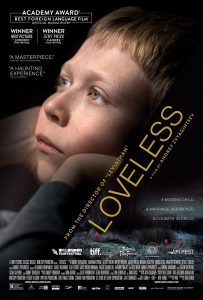Brent Marchant's Blog, page 95
March 8, 2018
‘Annihilation’ challenges our notions of existence
“Annihilation” (2018), Cast: Natalie Portman, Oscar Isaac, Jennifer Jason Leigh, Gina Rodriguez, Tessa Thompson, Tuva Novotny, Benedict Wong, David Gyasi. Director: Alex Garland. Screenplay: Alex Garland. Book: Jeff VanderMeer, Annihilation. Web site. Trailer.
Many of us probably like to believe that we have reality all figured out, that we know how it works and how the process of its unfolding takes place. But do we? Are we sure that the rules we believe apply are true across the board, in all situations and permutations? And what happens if something comes along that challenges those seemingly rock-solid assumptions? How do we explain these anomalies? What’s more, can we cope with such puzzling, unexplained phenomena, particularly if they significantly differ from our established worldview? Those are among the considerations raised in the gripping new sci-fi saga, “Annihilation.”
When something unknown and otherworldly crashes into a lighthouse in a remote state park, conditions in the surrounding environment begin to change drastically. A phenomenon that comes to be known as “the Shimmer” encompasses the area, and, by all accounts, it appears to be slowly growing, consuming everything nearby. Bounded by an energy field characterized by an ethereal, rainbow-like glow, the Shimmer is a genuine enigma, one that top-secret government investigators desperately want to understand – before it’s too late.

Lena Kane (Natalie Portman), an intrigued biologist, is on the verge of discovering mind-blowing new insights about the nature of existence in director Alex Garland’s riveting new sci-fi adventure, “Annihilation.” Photo courtesy of Paramount Pictures.
To get a handle on the nature of the phenomenon, the investigators establish a research facility known as Area X on the Shimmer’s perimeter. But, because the Shimmer distorts the operation of their monitoring equipment, they’re unable to obtain any meaningful readings about how it functions or what’s going on inside it. Thus the only way to find out about it is to send special ops military reconnaissance teams inside to gather data. The problem with that, however, is that all the teams that go in never come back.
Circumstances change, however, when something unexpected happens – one of the team members from the most recent expedition, Sgt. Kane (Oscar Isaac), mysteriously returns after a year’s absence, long past the time when he was presumed missing and dead. Kane is now different, though, seemingly disoriented and suffering from memory loss, not only of his time inside the Shimmer but also about much of his life before he left on his mission. This proves seriously disturbing to his wife, Lena (Natalie Portman), a former soldier turned biologist, who’s stunned by his return and can’t fathom his current state of mind. But, then, that’s not entirely surprising, given that she knew nothing of the nature of his mission before he departed. Nevertheless, she would still like answers about his disappearance and how he came to be how he is now.
Lena has little time to get her answers, though, since Kane quickly falls seriously ill, hemorrhaging severely. She contacts paramedics, who rush him off to the hospital. But, along the way, the ambulance encounters a convoy of black SUVs that force it off the road. Kane and Lena are forcibly removed and whisked away to an unknown location.
Upon awakening from an apparent involuntary sedation, Lena finds herself in Area X. She’s met and questioned by a cryptic psychologist, Dr. Ventress (Jennifer Jason Leigh), who asks Lena about her husband, the circumstances of his return and his confused state of mind, but she’s unable to offer much in the way of insight. And so, with that, the mysterious doctor decides to inform Lena where she is, showing her the unexplained phenomenon that looms just beyond Area X’s perimeter.

Biologist and former army specialist Lena Kane (Natalie Portman, left) is puzzled by the mysterious return of her missing husband (Oscar Isaac, right) after a year’s absence on an enigmatic classified mission in the captivating new sci-fi saga, “Annihilation” Photo courtesy of Paramount Pictures.
After seeing the Shimmer, Lena is captivated, despite the disappearance of virtually all members of the previous expedition teams. Ventress says that she and her colleagues believe the mission specialists were either killed or went mad and killed themselves, a circumstance that makes Kane’s return that much more mystifying. Ventress also reveals that she’s organizing a new team to enter and explore the luminous spectacle, one this time made up entirely of scientists, including herself, anthropologist Cass Sheppard (Tuva Novotny), physicist Josie Radek (Tessa Thompson) and paramedic Anya Thorensen (Gina Rodriguez). Given her expertise in biology and her vested interest in understanding her husband’s mysterious disappearance and return, Lena asks if she can join the team, to which Ventress readily agrees.
Within days, the team embarks on its journey into the Shimmer – and the vast unknown. What they find defies virtually everything they know about science and the nature of existence, presenting them with an even bigger puzzle than anything they’ve encountered up to that point. To say more would reveal too much about the mystery of the Shimmer and what it represents, but suffice it to say that the discoveries that come out of the expedition will turn all of our theories about evolution, physics and even metaphysics upside down and inside out, presenting an entirely new way of looking at the nature of existence. The boundaries between science and spirituality will become blurred – and fused – in utterly remarkable ways, providing stunningly brilliant and insightful revelations about what actually constitutes creation – and annihilation – and what it means to experience them firsthand.
As physical beings, we generally like to think we’re pretty sure-footed in our convictions and understanding of how our existence comes into being and functions. We also tend to think that this is how reality operates everywhere, that the rules that determine things here are as applicable in Peoria as they are on Saturn and in galaxies far, far away. So it’s not surprising that we might become utterly disoriented if we find evidence to the contrary, especially if it involves rules that we can’t fathom. Such is the case with the Shimmer.
Why is this so? In many ways, this comes about as a result of the functioning of the conscious creation process, the philosophy that maintains we manifest the reality we experience as a consequence of the power of our thoughts, beliefs and intents. The existence with which we interact originates from those beliefs, and the seeming consistency of its operation results from beliefs that compel such an outcome.
However, given that conscious creation maintains we have an infinite number of possibilities for existence available to us at any given moment, based on the underlying manifesting beliefs involved, there’s an equally infinite number of possibilities for how our reality can unfold. We’re accustomed to the existence we’re most familiar with, because it’s based on the set of intents with which we’ve become most comfortable – so much so, in fact, that we’ve generally come to believe that it’s the only game in the Universe. But, as this story so aptly illustrates, that’s not so.

A team of intrepid scientists, including (from left) psychologist Dr. Ventress (Jennifer Jason Leigh), biologist Lena Kane (Natalie Portman), anthropologist Cass Sheppard (Tuva Novotny), physicist Josie Radek (Tessa Thompson) and paramedic Anya Thorensen (Gina Rodriguez), embarks on an exploration of a mysterious luminous phenomenon known as “the Shimmer” in director Alex Garland’s latest release, “Annihilation.” Photo courtesy of Paramount Pictures.
Ironically, as self-assured as we’ve become with this supposedly unshakeable understanding of the nature of existence, we often don’t have as astute an awareness of the manifesting beliefs as we believe we do. In fact, many of us are now just beginning to grasp the notion that our beliefs have anything to do with the materialization of our reality, let alone what those specific manifesting beliefs are. So it stands to reason that we’d naturally become perplexed when our reality doesn’t “behave” as we think it should.
Imagine, for example, what it might be like to suddenly find ourselves in a reality where our thoughts transform into tangible expressions of existence on demand and without hindrance. Given that most of us are unaccustomed to such phenomena – largely because we’re either unaware of the beliefs that drive our existence or because our beliefs consist of entangled amalgamations of ideas and intents that sometimes contradict one another and negate or distort the materializations that result from them – we might easily freak out if we were to have an experience that runs counter to what we’re typically accustomed to. The disorientation resulting from such an experience could be overwhelming. Yet, based on how conscious creation works, there is a bona fide possibility out there where an existence that functions on the foregoing basis indeed exists, even if we’ve never experienced it before or are unable to envision how it might come into being.
Moreover, it may also be disorienting if we were to suddenly find ourselves in an existence where elements familiar and comfortable to us are replaced with new and different manifestations – including some that would fly in the face of logic or “common knowledge” – seemingly at the drop of a hat. This notion thus aptly reflects the conscious creation concept that we’re all in a constant state of becoming, that everything is continually evolving. It also makes clear that there’s often an element of destruction – or “annihilation” – in any act of creation, no matter how counterintuitive that notion might seem. The occurrence of such materializations could easily leave us confused, wondering how they came into being, especially among those of us who are unaware of or unfamiliar with the conscious creation process and the means that make it work. Yet, again, outcomes that embody these principles are wholly feasible, even if they’re foreign to us.
As the expedition team makes its way through the Shimmer, hints at such ideas begin to appear. In addition, there’s evidence of other profound phenomena, such as the re-emergence of the divine feminine in the world, the theory of panspermia, and the inherent harmony between science and spirituality, not to mention a host of other elements reflecting principles found in Buddhism, Christianity and New Age thought, to name but a few. All told, it’s a lot to take in for the mission specialists, especially among the team members – all scientists – who likely aren’t well schooled in such lofty metaphysical and spiritual notions, all of which helps to explain why the elusive nature of the Shimmer is so difficult to understand. But making the effort to do so is important, both for the reality in which we find ourselves and for any into which we may someday move.

“Annihilation” is a mind-blowing, sophisticated sci-fi tale masterfully brought to the screen by director Alex Garland, who has upped his game considerably here, even outstripping the success of his previous work, “Ex Machina” (2014). The film’s richly layered, deftly nuanced script, combined with gorgeous cinematography and an inventive production design, make for riveting viewing. Note, however, that this is not a picture to be watched casually or when easily distracted. An attentive screening is sure to reward viewers, providing endless captivation and much to think about in the film’s wake, possibly forever changing one’s views on the heady subjects it so eloquently addresses.
As wondrous as we already believe existence to be, it has the potential to be far more astounding than we can possibly imagine, and “Annihilation” skillfully opens the door to give us but a mere glimpse of what’s potentially in store. Admittedly some may find these notions somewhat jarring or upsetting, but, for those who appreciate and willingly embrace the opportunity to expand their consciousness, this film provides the means to adopt a glorious – and entirely new – worldview.
Copyright © 2018, by Brent Marchant. All rights reserved.
The post ‘Annihilation’ challenges our notions of existence appeared first on Brent Marchant.
‘Black Panther’ urges us to follow our own destiny
“Black Panther” (2018). Cast: Chadwick Boseman, Michael B. Jordan, Lupita Nyong’o, Danai Gurira, Daniel Kaluuya, Letitia Wright, Winston Duke, Sterling K. Brown, Angela Bassett, Forest Whitaker, Andy Serkis, Martin Freeman, John Kani, Atandwa Kani, Ashton Tyler, Denzel Whitaker. Director: Ryan Coogler. Screenplay: Ryan Coogler and Joe Robert Cole. Source Material: Stan Lee and Jack Kirby. Web site. Trailer.
Can a good man truly lead without being corrupted by the power that comes with it? History is certainly replete with plenty of examples to the contrary, and, in an age where widespread greed and self-serving attitudes sometimes seem ubiquitous, the question takes on added significance. That’s why it’s so important to have role models who seek to live up to that ideal, an example of which provides a central theme in the new action-adventure, “Black Panther.”
In the latest offering from Marvel Studios, audiences witness the adventures of T’Challa (Chadwick Boseman), king of the mythical African nation of Wakanda, a technologically advanced society shrouded from the outside world, a kind of high-tech Shangri-La. When T’Challa unexpectedly assumes the throne after the untimely assassination of his father, T’Chaka (John Kani), the young monarch must grow up fast. But, as an idealistic leader, he willingly takes on the challenge, daunting though it may be.

Young King T’Challa (Chadwick Boseman, left) and longtime confidante W’Kabi (Daniel Kaluuya, right) face multiple challenges to protect their mythical African homeland of Wakanda in the new action-adventure, “Black Panther.” Photo by Film Frame © Marvel Studios.
One of the biggest issues T’Challa must tackle is his country’s isolation and its longstanding unwillingness to share the resources and technology that have made it such a paradise. Should he continue this policy, one based on fears of what the outside world might do with the things that have made his homeland great? Or is it time for a change?
These are questions that T’Challa doesn’t get much time to ponder, though, as outsiders soon force his hand. Nefarious foes, like arms dealer Ulysses Klaue (Andy Serkis) and former black ops soldier Erik “Killmonger” Stevens (Michael B. Jordan), seek to plunder and exploit Wakanda’s resources and use its technology to help an alliance of underprivileged countries rise up and assume power over the planet as a unified force. And the only one standing in their way is the noble monarch and his alter ego, the Black Panther, aided and supported by his onetime romantic interest, Nakia (Lupita Nyong’o), his loyal military aide, Okoye (Danai Gurira), his tech whiz sister, Shuri (Letitia Wright), his courageous, resourceful mother, Ramonda (Angela Bassett), and an old acquaintance, CIA agent Everett Ross (Martin Freeman).
As events play out, complications develop, making the job of T’Challa/the Black Panther ever more difficult. The forces he takes on grow increasingly powerful, especially once they get their hands on the keys to the kingdom. He even has cause to question the loyalty of friends, such as his longtime confidante W’Kabi (Daniel Kaluuya). It’s also disheartening for T’Challa to discover that the roots of these current issues partly stem from mistakes made in the past by those near and dear to him, errors in judgment that spawned personal ill will, as well as the seeds of the kingdom’s present-day troubles. The young leader learns what it means to grow up and into one’s power more quickly than expected – and, in doing so, to tap into one’s own sense of right and wrong, a sensibility of his own making and not necessarily based on the lessons imparted to him during his grooming for the throne. His odyssey truly becomes one of finding out whether it’s indeed possible for a good man to rule justly and effectively.

King T’Challa’s alter ego, the Black Panther (Chadwick Boseman), matches wits with an array of evildoers in the new action-adventure tale, “Black Panther.” Photo by Film Frame © Marvel Studios.
How well T’Challa succeeds depends on his beliefs, the cornerstone of the conscious creation process, the means by which he manifests the reality he experiences. To find his own greatness, he must find his own path, embracing those beliefs that reflect his true self, those that enable him to tap into his personal integrity, and those that allow him to express his own sense of value fulfillment, the principle associated with being our best selves for the benefit of ourselves and those around us.
This is important, for, if T’Challa were to strictly adhere to the beliefs he was raised with, his effectiveness could be compromised, as those notions might not fully or adequately align with his intents and values. Yet brushing aside those beliefs could prove difficult, especially if they were imparted to him by those whom he believed were utterly trustworthy or innately infallible. Such acts could be seen as a personal betrayal, even if he knew there were aspects of those teachings that were somehow incomplete, inadequate or flawed.

Former black ops soldier Erik “Killmonger” Stevens (Michael B. Jordan) seeks to plunder and exploit the resources of a nation in “Black Panther.” Photo by Film Frame © Marvel Studios.

Ramonda (Angela Bassett, left), widow of an assassinated king, and her daughter, Shuri (Letitia Wright, right), seek to aid a new monarch in peril in “Black Panther.” Photo by Matt Kennedy © Marvel Studios.
This is where learning how to practice discernment and to overcome our personal fears is crucial. Being sufficiently circumspect and courageous to determine and follow our own intents – even if they go against what we were taught to believe – can prove to be vital in attaining our goals, especially where the stakes are high and the well-being of others is in jeopardy. These are qualities that T’Challa and the Black Panther must embrace to succeed in their endeavors. After all, the fate of a nation – indeed, that of the entire world – hang in the balance and depend on the good king’s ability to live out his values, not to mention his destiny.
These sentiments, coupled with the inherently noble attributes typically accorded a superhero, provide the basis for the central narrative in “Black Panther.” However, the film’s excessive earnestness and the protagonist’s nearly complete lack of any character flaws at times lead to a story that begins to border on implausibility. What’s more, as much as I’ve admired Boseman’s stellar performances in pictures like “Get on Up” (as soul singer James Brown, 2014) and “42” (as baseball great and civil rights activist Jackie Robinson, 2013), he seems somewhat miscast here, coming across as one of the blandest superheroes I’ve ever seen on screen. In fact, when you find yourself more drawn to a villain like Jordan’s Killmonger, that speaks volumes about the ineffectiveness of the casting. Of course, it probably doesn’t help that the protagonist and the rest of the cast have to work with a script full of cookie cutter predictability and an insufficient back story for T’Challa’s alter ego, not to mention an array of generally underwhelming special effects.
Still, despite these flaws, the film does have some inspiring ideas to offer, such as those illustrating our intrinsic connectedness and our need to work together as a species if we hope to have a future. It also features an array of fine supporting performances, such as those turned in by Jordan, Serkis, Nyong’o, Wright and Bassett. Nevertheless, though, for a movie that’s been drawing raves, I expected a lot more than what it actually delivers.

In the end, though, we come back to the question raised at the top. Is it possible to successfully maneuver the minefield of perils that await those who attempt to traverse such a difficult path? Tune in to find out.
Copyright © 2018, by Brent Marchant. All rights reserved.
The post ‘Black Panther’ urges us to follow our own destiny appeared first on Brent Marchant.
March 6, 2018
Tune in to The Cinema Scribe
Tune in for the latest Cinema Scribe segment on Bring Me 2 Life Radio, tomorrow, March 7, at 12:45 pm ET, available by clicking here. And, if you don’t hear it live, catch it later on demand!


The post Tune in to The Cinema Scribe appeared first on Brent Marchant.
This Week in Movies with Meaning
Reviews of “Annihilation,” “The Party” and “Loveless,” as well as an Oscar wrap-up, are all in the latest Movies with Meaning post on the web site of The Good Media Network, available by clicking here.





The post This Week in Movies with Meaning appeared first on Brent Marchant.
March 5, 2018
How’d I Do on This Year’s Oscars?
With this year’s Academy Awards ceremony behind us, it’s time to take a look at how I did on my predictions for the winners in this annual competition, as first outlined in my previous blog, “Who Will Win This Year’s Oscars?”, posted on February 23.
And the result? Five out of six correct calls, with one miss. Here are the details:
Best Picture

Projected Winner: “Three Billboards Outside Ebbing, Missouri”
Actual Winner: “The Shape of Water”
Result: Missed call (sort of)
This has become the most difficult category to call in recent years, largely because it’s been hard to discern the mind of the Academy voters. In years when it seems they’re going to play it safe, they go with something edgy and vice versa. This year, given all of the recent game-changing upheavals in the movie industry, and based on the results of many of this year’s previous awards competitions, it seemed as though voters were in a scrappy mood, which accounts for the many prior wins by “Three Billboards Outside Ebbing, Missouri,” an outcome I believed would carry over into the Oscars.
However, much to my surprise, on awards night, the statue went to “The Shape of Water,” a comparatively “safer” bet. Why? Perhaps Hollywood is ready to start putting the controversies of recent months behind it and get back to the business of making movies, and choosing this film as best picture was a way of starting that process.
Not that I’m disappointed with the choice; after all, “The Shape of Water” was the No. 3 film on my list of 2017’s top 10. However, I’m a little surprised at the shift in voters’ tone, given the wins by “Three Billboards” at the Golden Globes and the BAFTA Awards, where it bested “The Shape of Water,” and at the Screen Actors Guild Awards for best acting ensemble (often a bellwether indicator of the best picture at the Oscars), where “The Shape of Water” wasn’t even nominated.
To my own credit, ahem, I did say that “The Shape of Water” was probably the only picture that could seriously challenge “Three Billboards,” that it was part of a two-horse race for the top prize. So, given that this ended up being the case, I’ll gladly take a half-credit on this one (because I can!). Maybe I’ll get the mood of the voters right in future years.
Best Actor

Projected Winner: Gary Oldman, “Darkest Hour”
Actual Winner: Gary Oldman, “Darkest Hour”
Result: Correct call
This was a no-brainer. Oldman won virtually everything all season long, and there was no reason to believe that this would change on Oscar night. It’s a deserving award for a deserving performance, one that, in my opinion, left virtually all of his competitors in the dust. Nice choice, Academy!
Best Actress

Projected Winner: Frances McDormand, “Three Billboards Outside Ebbing, Missouri”
Actual Winner: Frances McDormand, “Three Billboards Outside Ebbing, Missouri”
Result: Correct call
This was another no-brainer. McDormand won virtually everything all season long, and, again, there was no reason to believe that this would change on Oscar night, even if she did have serious though largely unrecognized competition from Margot Robbie in “I, Tonya” and Sally Hawkins in “The Shape of Water.” Nevertheless, it’s another deserving award for another deserving performance.
Best Supporting Actor

Projected Winner: Sam Rockwell, “Three Billboards Outside Ebbing, Missouri”
Actual Winner: Sam Rockwell, “Three Billboards Outside Ebbing, Missouri”
Result: Correct call
Yet another no-brainer. Rockwell won virtually everything all season long, and, again, there was no reason to believe that this would change on Oscar night, even though this category fielded considerable (though unrecognized) competition from all of its very deserving nominees (Willem Dafoe, “The Florida Project”; Woody Harrelson, “Three Billboards Outside Ebbing, Missouri”; Richard Jenkins, “The Shape of Water”; Christopher Plummer, “All the Money in the World”). It was good to see a deserving nominee finally receive the recognition he deserves.
Best Supporting Actress

Projected Winner: Allison Janney, “I, Tonya”
Actual Winner: Allison Janney, “I, Tonya”
Result: Correct call
Perhaps the biggest no-brainer of all, Janney has been on fire all awards season long, taking home an Oscar for one of the best supporting actress performances in years. This was a very deserving win for a tailor-made role for an actress who has gone unrecognized for far too long. As in the supporting actor category, Janney had formidable (though unrecognized) competition from all of her fellow nominees (Mary J. Blige, “Mudbound”; Lesley Manville, “Phantom Thread”; Laurie Metcalf, “Lady Bird”; Octavia Spencer, “The Shape of Water”), but the right actress won – and deservedly so.
Best Director

Projected Winner: Guillermo del Toro, “The Shape of Water”
Actual Winner: Guillermo del Toro, “The Shape of Water”
Result: Correct call
Rounding out the field of no-brainers, del Toro’s win for best director was easy to see coming, having taken top honors in virtually every contest up to Oscar night. The makeup of this category was indeed interesting, including a mix of veterans and newcomers, but the right candidate came out on top, while giving the veterans just recognition and the newcomers a down payment toward future consideration. Congratulations to the winner!
Oscar® and Academy Award® are registered trademarks of the Academy of Motion Picture Arts & Sciences.
Copyright © 2018, by Brent Marchant. All rights reserved.
The post How’d I Do on This Year’s Oscars? appeared first on Brent Marchant.
March 1, 2018
‘The Insult’ searches for resolution in a world on the edge
“The Insult” (“L’insulte”) (2017). Cast: Adel Karam, Kamel El Basha, Camille Salameh, Diamond Bou Abboud, Rita Hayek, Talal Jurdi, Christine Choueiri, Julia Kassar, Carlos Chahine, Georges Daoud, Elie Njeim, Rifaat Torbey. Director: Ziad Doueiri. Screenplay: Ziad Doueiri and Joëlle Touma. Web site. Trailer.
Oftentimes, when people quarrel, they’re not really debating about what they claim they’re arguing about. In many instances, there are issues beneath the surface that are the actual source of the conflict, most of which are far removed from the problem at hand. These proxy disputes provide a buffer against the real issue coming out, either because we don’t recognize the true root of the disagreement or because we’re not ready to deal with it. However, if genuine resolution is to come about, it’s imperative to cut through the clutter to get to the heart of the matter, an undertaking explored in the new Lebanese drama, “The Insult” (“L’insulte”).
In a Lebanese Christian neighborhood of Beirut, a dispute arises when Yasser Salameh (Kamel El Basha), a Palestinian refugee contractor hired to fix building code violations, runs afoul of Toni Hanna (Adel Karam), a local resident, by repairing a faulty drain pipe extending from the occupant’s balcony. With the contractor having acted without his consent, Toni is insulted, demonstrably smashing the repair work and calling Yasser a vile name. Toni then angrily approaches Talal (Talal Jurdi), the contractor’s boss, demanding an apology. Yasser’s boss seeks to smooth things over, but Toni will have none of it until he gets his apology.

Lebanese Christian Toni Hanna (Adel Karam, left) and Palestinian refugee Yasser Salameh (Kamel El Basha, right) become involved in a minor dispute that quickly escalates into a conflict with national implications in the new, Oscar-nominated drama, “The Insult” (“L’insulte”). Photo courtesy of the Cohen Media Group.
Not long thereafter, Talal encourages Yasser to give Toni what he wants. He informs Yasser that there’s more at stake than his pride, including the prospects of future work. And so, Yasser reluctantly agrees to meet with Toni for a street-level summit organized by Talal. However, when the combative parties meet, Toni’s hatred becomes obvious, prompting Yasser to pull back from his promise to apologize. As the tension mounts, Toni lets loose with a racially charged disparagement of Yasser’s Palestinian heritage, an insult that could be construed as a hate crime. Toni’s words anger Yasser so much that he punches his opponent in the stomach, breaking several ribs and necessitating a hospital visit.
The conflict lands the two men in court before a judge (Carlos Chahine) who has little patience for the combatants. When he asks each party for specific evidence about their contentions, they either hedge their answers or refuse to divulge what they know, prompting the judge to dismiss the case and acquit Yasser.

Palestinian refugee Yasser Salameh (Kamel El Basha, center) has his day in court with representation by his young, idealistic lawyer, Nadine Wehbe (Diamond Bou Abboud, right), in the gripping Lebanese drama, “The Insult” (“L’insulte”). Photo courtesy of the Cohen Media Group.
Unsatisfied, however, Toni presses on, appealing his case to a higher court and hiring one of the Christian community’s most prominent prosecutors, Wajdi Wehbe (Camille Salameh), to represent him. In turn, Yasser retains a young lawyer, Nadine Wehbe (Diamond Bou Abboud), an idealist who happens to be Wadji’s daughter and who strongly believes that Palestinian litigants don’t receive fair treatment in the Lebanese judicial system. Presiding over the case is a panel of three judges led by chief justice Collette Mansour (Julia Kassar), who intends to maintain a tight leash over proceedings that obviously have the potential to get out of hand, especially now that the dispute has begun to receive increased public attention.
Outside of court, circumstances quickly begin to spiral out of control. Issues arise involving the plaintiff’s health, which runs into complications during his recovery, and his relationship with his pregnant wife, Shirine (Rita Hayek), who subsequently develops serious obstetric challenges. On top of that, the case soon becomes a media circus, with racially charged sentiments spilling over into the streets, leading to protests, heated arguments and even riots, events that trap innocent parties in the crossfire.
Meanwhile, inside the courtroom, the ante is continually upped, especially when the parties’ counselors introduce evidence and conduct lines of questioning that delve into the litigants’ personal histories and backgrounds. These tactics, though somewhat questionable, nudge the real issues at the heart of their conflict to the surface, most of which have causes that extend back far beyond their misunderstanding about the drain pipe, some of which are rooted in the combating parties’ experiences in the Lebanese Civil War. With these issues exposed, painful memories emerge, with anguish that becomes exacerbated when Toni and Yasser see what their skirmish is doing to their country, opening old wounds and threatening to make them worse – for everybody. Quietly, the litigants begin to reconsider their positions, but, publicly, even the heartfelt reconciliation pleas of a prominent politician (Rifaat Torbey) seem to go unheeded as the country descends deeper and deeper into chaos.

A legal dispute strains relations between Toni Hanna (Adel Karam, right) and his pregnant wife, Shirine (Rita Hayek, left), in the new Lebanese drama, “The Insult” (“L’insulte”). Photo courtesy of the Cohen Media Group.
Will Lebanon save itself before tearing itself apart? Will the quarreling parties get to the root of their disagreement and resolve it, setting an example for their increasingly contentious countrymen? Or is the nation’s fate irretrievably sealed, becoming yet another casualty of the uncontrolled, inflexible emotional and political sentiments sweeping across so many countries these days? This is a potent cautionary tale with implications that can be writ both large and small, given that the bedrock on which they rest is the same in both cases – and just as shaky in each instance.
To realistically solve these issues, Toni and Yasser must take a good hard look at their beliefs, for they drive the conscious creation process, the means that forms the basis of their respective realities. And this is true whether or not each party fully recognizes the authentic nature of those beliefs, a circumstance that can prove to be quite problematic when those underlying intents involve volatile matters, as is very much the case here.
Given that their conflict appears to be rooted in beliefs that originated in the past, their current situation clearly demonstrates the power and persistence of these notions. It’s as if the beliefs are operating on autopilot, subtly but continually manifesting conditions related to their nature, no matter how beneficial or detrimental they may ultimately be. And, as becomes apparent as the film plays out, they carry the potential for reigniting old hatreds and inciting a new round of troubles, issues that the country had thought (or, more precisely, would like to have thought) it had put behind it.

With a minor civil dispute that gets out of hand, litigant Toni Hanna (Adel Karam) must do some serious soul-searching when the conflict begins to have national implications in the Oscar-nominated Lebanese drama, “The Insult” (“L’insulte”). Photo courtesy of the Cohen Media Group.
If circumstances are ever to change, Toni and Yasser will need to begin with changing their beliefs, not just for themselves, but also for the Lebanese population. In many ways, the conflict between the two combatants is metaphorical of a larger, national problem, a microcosmic materialization of beliefs that have gone unrecognized and unaddressed for a long time, despite recent events.
The scenario depicted here also illustrates the power of co-creation at work. Even though the fight begins with two individuals, it quickly escalates into a melee involving a much larger contingency, with each participant contributing his or her energy and belief support to the unfolding drama, be it knowingly or unwittingly. Again, if resolution is to occur, a change in beliefs is in order, though this time on a much larger scale.
Change is possible, though, as long as the parties to this dispute – both personally and collectively – are willing to make the effort to analyze what’s driving their existence and to consider previously untried options for altering their reality. This takes thinking outside the box, pushing past preconceived limitations and devising inventive solutions that can bring about meaningful and acceptable resolution. It would seem that all parties involved have their work cut out for them, but, given that conscious creation makes all probabilities possible, a solution is by no means out of the question. If more of us were to take such an approach in both our personal and public disputes, we would almost assuredly have considerably fewer problems in the world today.

Though sometimes a little shrill and overly dogmatic in its tone and a little formulaic in its narrative format, “The Insult” nevertheless serves as an effective metaphor for many of humanity’s ills these days. Excessive polarization, a desire for vengeance rather than justice and an unwillingness to compromise all take front-row seats in this drama about the sometimes-futile quest to find balance and reconciliation when those qualities are virtually nonexistent. A knowledge of Middle Eastern history and politics would certainly help aid the viewing experience of this film, but, even with not knowing all the details, the essence of the conflicts – and the picture’s central message – still come through loud and clear (sometimes a little more so than one might want). Yet, for its efforts, the picture has received an Oscar nomination for best foreign language film.
As this film illustrates, it would be in our best interests to face up to what the real issues are in our lives, be it on a personal or national scale. To put it off only prolongs the pain and the length of the resolution process. But it’s not impossible. “The Insult” shows what it means to make the effort and to search for a solution before the pot boils over.
Copyright © 2018, by Brent Marchant. All rights reserved.
The post ‘The Insult’ searches for resolution in a world on the edge appeared first on Brent Marchant.
February 28, 2018
Choose Positive Living
What were the best and worst movies of 2017? And which pictures will take home Academy Awards this weekend? Find out by listening to the latest edition of Choose Positive Living radio with Sara Troy and yours truly, available by clicking here.


The post Choose Positive Living appeared first on Brent Marchant.
February 27, 2018
Conscious Creation Goes to the Oscars
Don’t miss today’s edition of Smart Women Talk Radio with host Katana Abbott and yours truly. We’ll discuss this year’s Oscar-nominated films and the role that conscious creation plays in making them great viewing. Tune in at 3 pm ET by clicking here. Or catch the archived podcast later for on-demand listening.

The post Conscious Creation Goes to the Oscars appeared first on Brent Marchant.
February 26, 2018
This Week in Movies with Meaning
Reviews of “The Insult” and “Black Panther,” as well as previews of four radio shows, are all in the latest Movies with Meaning post of the web site of The Good Media Network, available by clicking here.







The post This Week in Movies with Meaning appeared first on Brent Marchant.
February 25, 2018
‘A Fantastic Woman’ sets powerful examples of courage, compassion
“A Fantastic Woman” (“Una mujer fantástica”) (2017). Cast: Daniela Vega, Francisco Reyes, Luis Gnecco, Aline Küppenheim, Nicolás Saavedra, Amparo Noguera, Trinidad Gonzáez, Néstor Cantillana, Sergio Hernández. Director: Sebastián Lelio. Screenplay: Sebastián Lelio and Gonzalo Maza. Web site. Trailer.
Saying goodbye is never easy. The pain and sorrow can be a lot to bear, even under the “best” of circumstances. But, when the situation becomes burdened by considerations that have no business intruding upon such a difficult process, the result can be unendurable. Such are the conditions addressed in the compelling new Chilean drama, “A Fantastic Woman” (“Una mujer fantástica”).
Businessman Orlando Onetto (Francisco Reyes) leads what appears to be a fairly comfortable life in Santiago. The 57-year-old runs a successful company and lives in a moderately upscale home. He also enjoys the companionship of his significant other, Marina (Daniela Vega), a beautiful, aspiring vocalist many years his junior with whom he’s developing a blossoming romance.

Chilean businessman Orlando Onetto (Francisco Reyes, left) shares an intimate romantic moment with his partner, Marina (Daniela Vega, right), in director Sebastián Lelio’s compelling new drama, “A Fantastic Woman” (“Una mujer fantástica”). Photo by Michelle Bossy, courtesy of Sony Pictures Classics.
As the film opens, Orlando and Marina celebrate her birthday with dinner, drinks and dancing. She’s especially touched when Orlando tells her he’s planned a romantic getaway for the two of them. In many ways, they share a perfect evening.
But, after returning home, circumstances take a drastic turn. Orlando awakens feeling ill, not sure what’s wrong bur definitely not himself. He struggles to stand up, quickly collapsing, after which Marina rushes him to the hospital. But, despite the medical staff’s efforts to stabilize his condition, Orlando dies of an apparent aneurism. Suddenly, Marina is left to sort out matters, a task that proves easier said than done. The reason: Marina, as it turns out, is “the other woman,” the love for whom Orlando abandoned his family and longtime wife, Sonia (Aline Küppenheim).
Needless to say, relations between Marina and Orlando’s family are anything but cordial. To help matters proceed as smoothly as possible, Marina contacts Orlando’s brother, Gabo (Luis Gnecco), the relative who seems most accepting of (or, more precisely, least hostile toward) the woman they blame for breaking up the family. Gabo says he’ll handle all the necessary arrangements, but, before long, others – like Sonia and Orlando’s adult son, Bruno (Nicolás Saavedra) – get involved in things, and neither of them is nearly as conciliatory. To her credit, Sonia tries to put on a civil face and to be as diplomatic as possible, even offering to compensate Marina for any inconveniences she’ll incur as a result of Orlando’s passing. But there’s one point on which Sonia has no flexibility: She insists that Marina not attend Orlando’s memorial service or funeral, because the family wants to suffer no further embarrassment from her presence in their lives. Marina is thus forced to grieve by herself, with no formal opportunity to say goodbye.

Aspiring vocalist Marina Vidal (Daniela Vega) must confront herself and her own identity under trying circumstances in the new Oscar-nominated drama, “A Fantastic Woman” (“Una mujer fantástica”). Photo courtesy of Sony Pictures Classics.
However, as soon becomes apparent, the family’s hostility toward Marina has to do with more than just her unwanted involvement with Orlando. To say more would reveal too much, but suffice it to say that she possesses qualities that the Onetto family finds objectionable, traits that made Orlando’s philandering more painful for them to endure than what others similarly situated might typically experience. But is the family justified in taking such a hostile stance? Or are they falling prey to outmoded, close-minded prejudices? Either way, Marina is left with having to face her grief alone under circumstances where her personal dignity, self-confidence and even her very identity are called into question, compounding her pain at a time when she least needs to be saddled with additional anguish.
Despite these obstacles, though, Marina remains steadfast in her resolve, both to say a proper farewell to her beloved and to assert her personal integrity. She thus boldly and courageously demonstrates what it means to confront the challenges that would hold her back from achieving her goals and maintaining an empowered sense of self. She makes it plain for all to see what a truly fantastic woman she really is.
To say that Marina is in a difficult spot would indeed be an understatement. The pain of losing her partner is traumatic enough, but to suffer the humiliation, callousness and degradation thrust upon her by Orlando’s family on top of that is gut-wrenching and demoralizing. What’s to be gained from such actions? For some, that may be hard to say. But, for those who follow the principles of conscious creation – the philosophy that maintains we manifest the reality we experience through the power of our thoughts, beliefs and intents – there may be something to be said for them, as long as the underlying materialization means are properly understood.
At first glance, Marina’s situation is one that no one should have to – let alone would want to – endure. Sometimes, though, if change is ever going to come about, examples must be set, and they must be visible enough for others to see, especially when a sense of justified outrage is to be unleashed. And, to bring about such results, “volunteers” are needed to step forward and pave the way. Those heroic figures may not be consciously aware of what they’re doing, and they may often find themselves bewildered when they wind up in the midst of such circumstances. However, their impact is often considerable, and, when they begin to see what effect they’re having, they often become emboldened by their efforts, galvanized in their resolve to see their desired goals come to fruition.

Chilean businessman Orlando Onetto (Francisco Reyes) leads a relatively pampered life, despite past troubles, in the engaging new romantic drama, “A Fantastic Woman” (“Una mujer fantástica”). Photo by Michelle Bossy, courtesy of Sony Pictures Classics.
In Marina’s case, she’s clearly put through the wringer, more so than she probably ever envisioned when she began this personal odyssey. Yet, no matter how difficult her situation becomes, she remains determined to forge ahead, to overcome her fears and the challenges placed before her. And, in doing so, she provides the example that others need to see to get past their own limited beliefs, to help pave the way for a new way of looking at things. That’s quite an accomplishment and one hell of a creation.
Along the way, individuals in these circumstances stand to benefit personally, too, strange as that may seem on a cursory glance. These scenarios provide the means for learning valuable life lessons. They also enable the protagonists at the center of them to grow personally, both in terms of building up one’s courage, as well as in learning things about themselves that they may have never previously known (qualities, for example, that feed directly into the development of Marina’s musical career). They may thus find themselves able to tap into skills and abilities that they didn’t know they possessed. They may also access parts of themselves that allow them to set new courses for the future. And they may accomplish tasks they never dreamed possible. Getting there may not be easy – perhaps even full of various pitfalls along the way – but the results could prove more than worth it, both for themselves and for others facing similar conditions. Considering what Marina is up against, one can’t help but see the value in the benefits that come from her efforts.

Launching a successful musical career is one of many challenges faced by Marina Vidal (Daniela Vega) in the new, Oscar-nominated drama, “A Fantastic Woman” (“Una mujer fantástica”). Photo by Michelle Bossy, courtesy of Sony Pictures Classics.
Even though it sometimes feels as if director Sebastián Lelio is needlessly stringing viewers along and leaves some of the narrative’s story threads unresolved, this intriguing offering from Chile delivers a fresh twist on the other woman genre, one that’s somewhat unexpected and features previously unexplored plot devices. With a fine debut lead performance by Vega, the story captivates the further one gets into it, leaving viewers wondering how it’s all going to end up. It’s unfortunate that some of the aforementioned tidying up is left unattended to, though, for, if it had been, this might have been a truly groundbreaking cinematic release.
For its efforts, “A Fantastic Woman” has drawn considerable critical praise and its share of awards season honors, including Oscar, Golden Globe, Critics Choice and Independent Spirit Award nominations for best foreign language film. In addition, the picture was named one of the top five 2017 foreign films by the National Board of Review.

Regardless of how one might feel about the morality of Orlando’s and Marina’s behavior, the film nevertheless makes plain its viewpoint on an individual’s right to grieve the loss of a loved one. It also shines a spotlight on the questionable practice of shaming someone for who he or she is, especially in a time of sorrow. No one deserves to be treated so callously, and we should always bear that in mind, no matter who they are.
Copyright © 2018, by Brent Marchant. All rights reserved.
The post ‘A Fantastic Woman’ sets powerful examples of courage, compassion appeared first on Brent Marchant.



